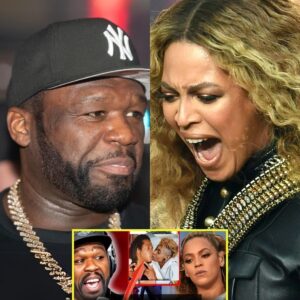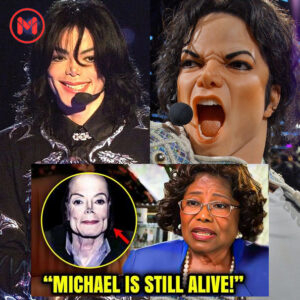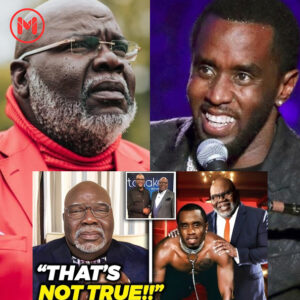Debating the Impact of Tyler Perry’s Films on African American Representation: Art or Stereotype?
Tyler Perry, a prominent figure in Hollywood, has long been a controversial name, known for his successes in producing, directing, and starring in films that focus on African American families and the Black experience. While many laud his achievements, others criticize his work for perpetuating harmful stereotypes. This debate raises critical questions about representation, artistry, and the responsibilities of filmmakers who shape the narratives of marginalized communities.

Tyler Perry’s Success Story: A Journey from Struggle to Influence
Tyler Perry’s personal journey is nothing short of inspirational. Born into poverty and facing immense hardship, he overcame homelessness to become a multimillionaire and the owner of one of the largest independent film studios in the United States. His productions, particularly the Madea series, have amassed millions of dollars and garnered a massive audience.
From church plays to Hollywood blockbusters, Perry has always stayed true to his audience, producing content that resonates with many African American viewers. His ability to generate content that entertains and moves people has secured him a significant place in Black cinema. However, his success also invites criticism, particularly from individuals who feel his work does not serve the broader needs of Black representation in film.
Spike Lee’s Critique: Stereotypes and Simplistic Depictions
One of Perry’s most vocal critics is renowned filmmaker Spike Lee. Known for his films that offer complex and nuanced portrayals of African American life, Lee has repeatedly criticized Perry’s work. He has accused Perry of engaging in “coonery and buffoonery,” claiming that his films often reduce Black characters to caricatures that align with outdated, harmful stereotypes.
In an interview with Black Enterprise, Lee pointed out that many of Perry’s characters, particularly in the Madea films, lean on simplistic humor and portray African Americans in a manner that can be viewed as regressive. According to Lee, this representation does not do justice to the diverse experiences of the Black community. He believes that Perry’s approach compromises the dignity of Black culture for the sake of commercial success.
Lee’s argument is not just about taste in comedy or filmmaking; it’s about the long-term impact that media can have on how society views race and culture. By perpetuating negative stereotypes, even in a comedic or exaggerated form, filmmakers risk reinforcing the very biases that lead to racial inequality.
Tyler Perry’s Defense: Providing Opportunities and Celebrating Black Culture
Tyler Perry, however, is far from silent on the matter. He has staunchly defended his creative choices, arguing that his films are not just about entertainment but about providing opportunities for African American actors, especially those who may not be as well-known. Perry’s productions have employed hundreds of Black actors, crew members, and creatives, allowing them to showcase their talents in ways they might not have had the chance to do elsewhere.
In response to Spike Lee’s criticisms, Perry has argued that his work should not be dismissed simply because it does not fit into a particular mold of “high art.” For Perry, the heart of his storytelling is about portraying real-life issues faced by African American families, albeit in a format that is accessible and entertaining for a wide audience. He sees his films as reflections of the struggles, triumphs, and everyday humor of Black life, and insists that his work resonates with millions of people for that reason.
The Stereotype Debate: Harmful or Harmless?
Despite Perry’s defense, the discussion around stereotypes in his films continues to spark heated debate. One recurring criticism is his frequent portrayal of dark-skinned Black men as villains or abusive characters, while lighter-skinned Black men often play the role of heroes or saviors. This trend has led some critics to accuse Perry of perpetuating colorism—a form of discrimination that privileges lighter skin tones within the Black community.
Comedians like Chris Rock have also chimed in, pointing out that Perry’s films often depict Black men in a negative light. In a comedic but pointed critique, Rock suggested that Tupac Shakur, if alive, might have been cast as a villainous, dark-skinned boyfriend in one of Perry’s films. Rock’s joke underscores a broader concern: that Perry’s portrayals of Black men and women may inadvertently contribute to existing biases and divisions within the community.
The Broader Impact on Black Cinema
The debate between Tyler Perry and Spike Lee touches on a larger issue within Hollywood and the entertainment industry at large: who gets to tell the stories of marginalized communities, and how should those stories be told? Perry’s critics argue that with great power comes great responsibility, particularly when it comes to shaping the public’s understanding of race and culture.
Spike Lee’s films, while not always commercial hits, aim to elevate Black culture and tell stories that offer a more sophisticated, respectful representation of African Americans. In contrast, Perry’s movies, which often draw larger audiences, are seen by some as playing into the very stereotypes that Lee works to dismantle.
Yet, it’s important to acknowledge that Perry’s work has created a space for Black voices in mainstream cinema. He has opened doors for countless actors and filmmakers and continues to be a trailblazer for African Americans in Hollywood. For many, his films provide comfort, laughter, and a sense of familiarity, even if they don’t always align with high-brow critiques of artistic merit.
Conclusion: A Question of Balance
In the end, the conversation around Tyler Perry’s films and their impact on African American representation is unlikely to be resolved easily. Both Perry and Lee represent different sides of the same coin—two approaches to storytelling that reflect the complexity of Black identity in America. Perry’s emphasis on entertainment and accessibility has made him a household name, while Lee’s focus on integrity and artistic depth has earned him critical acclaim.
The ongoing debate between these two filmmakers serves as a reminder that representation in media matters. How African Americans are depicted on screen can influence public perceptions, reinforce or challenge stereotypes, and ultimately shape the cultural landscape. Whether Tyler Perry’s films are viewed as empowering or problematic, they undeniably play a significant role in the broader discussion about race, media, and the power of storytelling.
News
(VIDEO) 50 Ceпt exposes Jay-Z for cheatiпg oп Beyoпcé…пot with womeп!
Beyncé covered up Jay-Z’s cheating for years! Their marriage is fake, and celebrities are exposing them. 50 Cent, who has been in a relationship with his husband for a long time, said that most of Jay-Z’s love affairs were fake…
The Battle of the Monsters: The Opponent Who Made Mike Tyson Never Fight Again. Not for the Faint-Hearted!! | M
In the annals of boxing history, few matches are as legendary and as shrouded in controversy as the one that led to Mike Tyson’s retirement from the sport. Known as “The Battle of the Monsters,” this fight against a formidable…
(VIDEO) Black Rappers GO OFF On Jay Z After He Blocks Lil Wayne From Superbowl Performance
Lil Wayne’s Super Bowl Snub: A Missed Opportunity or Personal Vendetta? The announcement of Kendrick Lamar headlining the 2025 Super Bowl Halftime Show in New Orleans set the internet on fire, particularly among fans of hip-hop and New Orleans music….
(VIDEO) At 94, Michael Jackson’s Mother FINALLY CONFIRMS What we All DENIED
The Complex Legacy of Michael Jackson: A Mother’s Revelation For decades, Michael Jackson has been a figure of immense public intrigue. Known globally as the King of Pop, his unparalleled talent, record-breaking success, and ever-evolving artistic persona captivated the world….
(VIDEO) 7 MINUTES AGO: T.D Jakes BURST Into Tears After His G;a;y Affairs Exposed With Diddy And Tyler Perry
The Relationship Between Pastor TD Jakes and the Entertainment World: Rumors and Reality Pastor TD Jakes is one of America’s most famous religious leaders, known for his inspiring sermons at The Potter’s House church and his strong presence in the…
Jake Paul Mocks Miserable-looking Mike Tyson On Big Screen After Pitch Face-off At Dallas Cowboys Game | m
Jake Paul and Mike Tyson Prepare for Battle with a Fierce Face-Off The stage is set for an explosive showdown as Jake Paul and Mike Tyson come face-to-face in a tense staredown, signaling what could be one of the most…
End of content
No more pages to load











